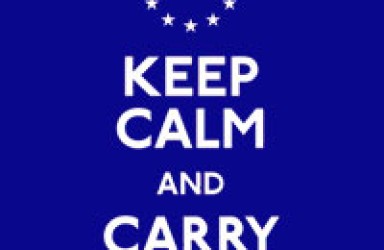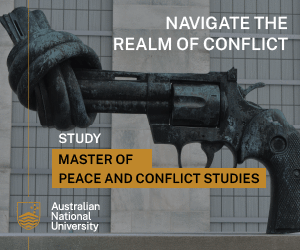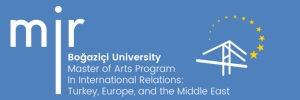Offense-Defense Theory and the absence of war on the Korean peninsula
This essay argues that the absence of a major war between North (DPRK) and South Korea (ROK) does not disprove the offense-defense theory (ODT) because the theory is capable of explaining the prevalence of peace under conditions when the defense has the advantage.
What are the main developments contained within the Treaty of Lisbon?
The year 2005 has meant a rejection of a viable constitutional project for the European Union. After a reconsideration and political stylization of the Constitutional Treaty, the Treaty of Lisbon was put together and signed by all of the 27 member states on the 13th of December 2007. What developments did it contain?
Does the European Union Need an Army?
There is much discussion between those who believe the EU should remain a wholly civilian (soft) power and those who argue that it should develop a military (hard) dimension. There is also a lively debate between those who seek to develop an autonomous military identity (Europeanists) and those who see Europe’s military future in NATO (Atlanticists). But does the EU need an army?
How radically did Hobbes depart from the natural law tradition?
There has been much debate on how to interpret Hobbes; especially whether he is to be understood as a materialist utilitarian, deducing his theory from an egoistic psychology and explaining obligation through rational calculation of self-interest, or whether, he is in fact, more of a Kantian deontologist adhering to the tradition of natural law. This essay argues against the latter position.
Does the European Union have a strategic culture?
This essay will posit that the EU does have a strategic culture, but one still in infancy, beset by weaknesses and potentially insurmountable obstacles. To demonstrate this, we shall explore key diplomatic efforts to enhance European strategic integration, responses to world events and operational deployments, how these have progressively shaped a common strategic culture, and how numerous issues undermine it.
Is it a good idea for western states to intervene in ‘humanitarian’ crises?
During the 1990s the political elites of liberal democratic states began to lean towards the norm which Kofi Annan, in his speech to the UN General Assembly in September, 1999, labeled as a norm to forcibly protect civilians who are at risk from genocide and mass killing. This undeniably raises the question: is it a good idea to intervene in humanitarian crises?
Al-Qaeda and the success of US intelligence
The year 1989 will remain in a global history as direct beginning of Soviet Union’s collapse which was finalized in the 1991. This year will also stay in world remembrance as a founding date of probably best known terrorist organization – Al-Qaeda. How well has US intelligence performed against this threat?
Is the United Nations Relevant?
This paper argues that despite its flaws in the political domain and the weaknesses of the Security Council, the UN’s role in sustaining the economic and social development and addressing global issues such as hunger has been exceptionally strong. It is inadequate to focus on the UN’s political realm only and dismiss the other substantive areas of its work such as sustainable development.
Hamas in Power
Hamas, ‘Harakat al-Muqawama al-Islamiyya’ (The Islamic Resistance Movement), has evolved over time from its humble beginnings as a faction of the Muslim Brotherhood, to an arguably legitimate political body, controlling much of the occupied Palestinian territories. This paper will reflect on the key factors in its development and features of the movement, and will conclude with a discussion of Hamas’ future as both an agent of armed struggle and a legitimate political body.
Should the EU develop into a United States of Europe?
The present-day image of the EU can be defined as a political, economic, social and legal hybrid with a combination of federal, confederal, supranational and intergovernmental features. Whether it should proceed through the development of a U.S.E will remain a matter for deep reflection, for how it really works will never match one vision of how it should work.













